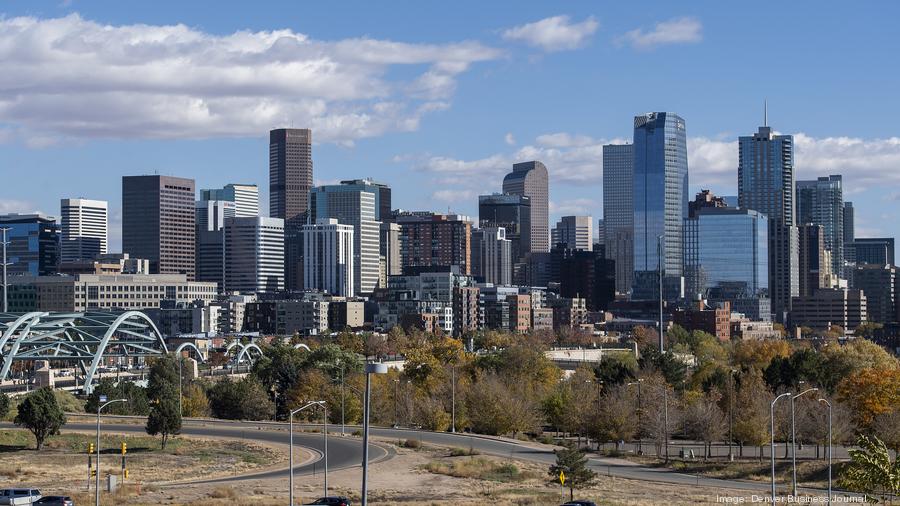Large office and apartment buildings in Denver will be pushed to start using solar power and switch to electric heating and water heating systems this decade under a new city ordinance passed this week.
Denver’s City Council on Monday night unanimously approved an ordinance aimed at cutting greenhouse gas emissions from Denver’s commercial and multifamily buildings larger than 25,000 square feet, seeking to eliminate 80% of the greenhouse gases they emit by 2030 and putting them on course to achieve net-zero carbon emissions ten years later.
“This is truly a monumental step in the direction of rapidly reducing our greenhouse gas emissions,” said Katrina Managan, buildings team lead for Denver’s Office of Climate Action, Sustainability and Resiliency. “When we talk about bold yet practical policies and actions that will have immediate and long-lasting benefits for residents, this is what we mean.”
The rules, the result of months of negotiation and work by the Energize Denver task force, passed without raising formal opposition.
The ordinance drew support from the local commercial real estate industry because what Denver is requiring is achievable and helps reach city goals for greenhouse gas emissions, said Kathie Barstnar, executive director of NAIOP Colorado, the trade association for commercial real estate professionals.
“This ordinance is a balance of ideas, needs and wants that, combined with future technology, will get us where we need to be,” she said.
City studies find 49% of overall greenhouse gas emissions in Denver come from its commercial and larger multifamily buildings today.
To reduce those emissions, Denver will make large building owners start switching building heat and water heating from natural gas to electric heat pumps and heaters in 2025, when building systems are upgraded or older systems need replacing.
A smaller class of 5,000- to 25,000-square-foot commercial buildings will be required to switch to all LED lighting by 2030 or get 20% of their electricity from solar power systems.
The city has required commercial and multifamily buildings of more than 25,000 square feet to report their energy use annually since 2016.
The benchmarking shows that Denver is not on course to meet its emissions reduction goals, largely because of growing energy consumption in its building stock, and that’s what motivated the new building performance ordinance, city officials say.
Under the new ordinance, Denver’s permitting process will be changed in 2023 to make permitting gas-burning water and building heating systems submit more information and no longer eligible to receive a permit through an online-only process. The change is meant to put permitting for electric systems and natural gas systems on equal footing.
The city also plans to start financial incentives that year to encourage building owners to switch to electrified systems, with half of those incentives targeted at building owners who would have difficulty affording electrification.
Starting in 2025, the city will start requiring building owners to buy electric heating or water heating systems when their existing fossil fuel-dependent systems have reached the end of their life and need to be replaced, with some consideration taken about whether the switch is cost effective for that specific building. Two years later, the city will start requiring the same kind of switch to heat pumps in buildings that are classified as harder to electrify.
The city will have penalties for building owners that don’t comply with the new requirements.
To come up with the strategies in the ordinance, the Energize Denver Task Force adapted ideas developed in a handful of other U.S. cities that have already enacted building performance standards, such as Boulder and St. Louis.
The exact rules governing incentive programs meant to help building owners switch systems will be adopted by the city in coming months.
Electrifying large building heating and water systems will be a cycle of expensive changes, said Stephen Shepard, executive vice president of the metro area Building Owners and Managers Association, during the City Council committee hearing on the topic.
He served on the Energize Denver task force, and it was able achieve consensus about the rules because members of the group understood different building types will have different needs, and the ordinance is fashioned that in mind.
The association in Denver has worked on building sustainability since 1985 and on other energy efficiency strategies since 2005, he said.
“Our buildings have not been as bad about being able to change for sustainability purposes as many people think,” Shepard said.
A bigger problem than switching building systems is the chronic shortage of building engineers to manage buildings and make sure their systems run as they’re designed to, he said.
Energize Denver’s building performance strategies being embraced by the city include funding workforce development programs to steer people into training and jobs associated with making buildings more energy efficient.
Denver will soon start a similar process to change city rules specific to industrial and manufacturing properties and encourage their electrification.
Industrial and manufacturing buildings are estimated to be responsible for 10% of the overall greenhouse gases emitted in Denver.
Total square feet developed in the Denver area in 2020
| Rank | Prior Rank | Business name |
|---|---|---|
1 | 1 | Continuum Partners LLC |
2 | 1 | Trammell Crow Company |
3 | 3 | NAVA Real Estate Development |





